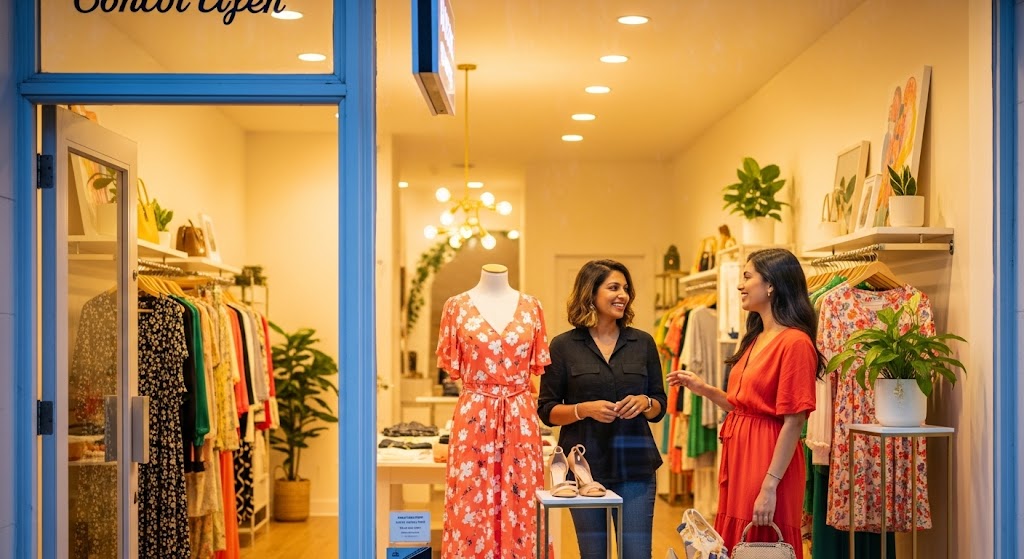It’s a story we’re seeing more and more in ecommerce: a once-thriving online business begins to falter. Sales, once a roaring fire, dwindle to a flicker. This was precisely the situation for a client of ours, the owner of a chic ladies' apparel store. Her online sales, initially the cornerstone of her success, were in a steady, perplexing decline. She called me in to uncover the mystery. How could a business that started so strongly now be on a downward spiral?
The Answer Was in Plain Sight
The answer, as it often does, lies hidden in plain sight, woven into the very fabric of her online presence.
As the owner walked me through her online boutique, a subtle yet significant pattern began to emerge. There were two distinct groups of models on her website. The first three individuals exuded a natural, effortless chemistry. They appeared together, and separately, in various outfits and settings. But they always looked like they could be the best of friends, sharing a laugh over coffee or heading out for a stylish afternoon adventure together. The other models, however, felt disconnected, like strangers at a party. They were polished and professional, but lacked the authentic spark of the first group.
The Discovery
When I pointed this out, the owner’s explanation was the first clue. The three authentic models? They were actually friends in real life. The photography was done specifically for the boutique, featuring women who genuinely enjoyed the clothes. The other models were from stock photography provided by manufacturers.
This led to a deeper, more revealing discovery. I asked the owner about the products themselves, and a clear division appeared. The clothes worn by the trio of friends were pieces the owner adored. And, in the store's heyday, she confessed that she would always buy one of everything she truly loved for her own wardrobe. She was her own best customer, her passion for the products evident in every hand-picked item.
But what about the clothes modelled in the stock photographs? The owner admitted she had no personal connection to them. The clothes were filler items she felt obligated to carry to have a larger inventory. She also admitted that she wouldn't wear them herself and, deep down, she didn't believe in them.
And there it was—the heart of the problem. Half the inventory in her store were products she didn’t believe in or wouldn’t wear herself.
The Disconnect
This disconnect, this lack of genuine passion, was silently poisoning her business. Customers are incredibly savvy. They can sense authenticity, or the lack thereof. The products the owner loved were presented with care, creativity, and a palpable sense of joy. The rest were just…there. They were a business transaction, not a heartfelt recommendation. And her sales figures reflected this schism perfectly.
The Realization and The New Rule
The turning point came with a powerful realization: the owner herself was the ultimate avatar for her store. She was the embodiment of the brand she wanted to build and the woman she wanted to attract. This insight reframed her entire approach to buying. The new litmus test for every potential piece of inventory became deeply personal: "Would I wear this?" If the answer was no, it simply didn't belong in her store. This wasn't about ego; it was about brand integrity. By curating a collection that she would personally endorse and enthusiastically wear, she ensured every item authentically represented the style and quality her target audience—women just like her—was seeking. The new rule was simple: if she didn't love it, if she wouldn't be excited to wear it herself, it didn't belong in her store.
A Transformation
The change was transformative. The online store once again became a curated collection of pieces the owner genuinely endorsed. Her own excitement for the products was contagious. Her marketing became more authentic.
And the result? Sales began to climb again. The steady decline reversed its course, and the business started to regain its former momentum.
This story is a powerful reminder for any entrepreneur: your authenticity is your greatest asset. In a crowded marketplace, it's the genuine love for what you do that sets you apart. Customers want to buy from someone who believes in their products so much that they would recommend them to anyone and everyone. When you lose that connection, you risk losing your customers too. For this boutique owner, rediscovering her passion wasn't just a feel-good exercise; it was the key to saving her business.





